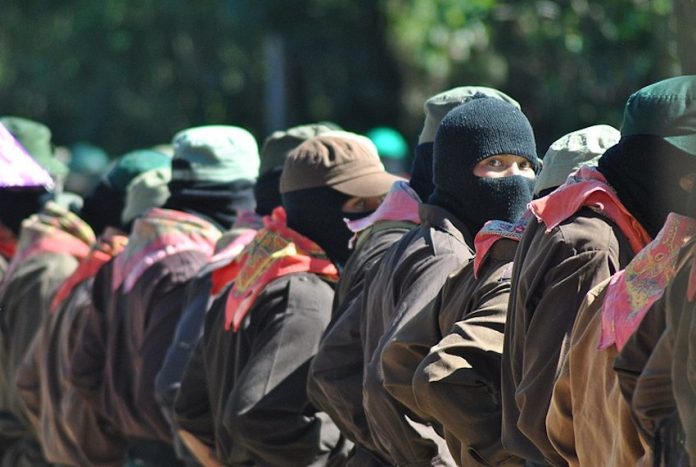The Zapatista Army of National Liberation (EZLN) – a rebel Indigenous group best known for staging an uprising in January 1994 – has announced the dissolution of its “autonomous municipalities” in the southern state of Chiapas.
“A few months ago, after a long and profound critical and self-critical analysis, and after consulting all the Zapatista towns, it was decided to disappear the Zapatista Rebel Autonomous Municipalities (MAREZ) and the Good Government Juntas,” the EZLN said in a statement signed by Zapatista leader Subcomandante Moisés.

Posted to an official Zapatista website on Sunday, the statement said that “all seals, letterheads, positions, representations and agreements with the name of any MAREZ or any of the Good Government Juntas are invalid from this moment on.”
It also said that “no person can present themselves as a member, authority or representative of any MAREZ or Good Government Junta.”
The autonomous municipalities – which are not officially recognized by the federal government – were declared in the years after the Zapatistas’ 12-day uprising in Chiapas in early 1994, which coincided with the entry into force of the North American Free Trade Agreement, or NAFTA.
The EZLN statement didn’t reveal the motivation for dissolving them, saying that “the reasons and process by which this decision was made” will be disclosed in future texts.
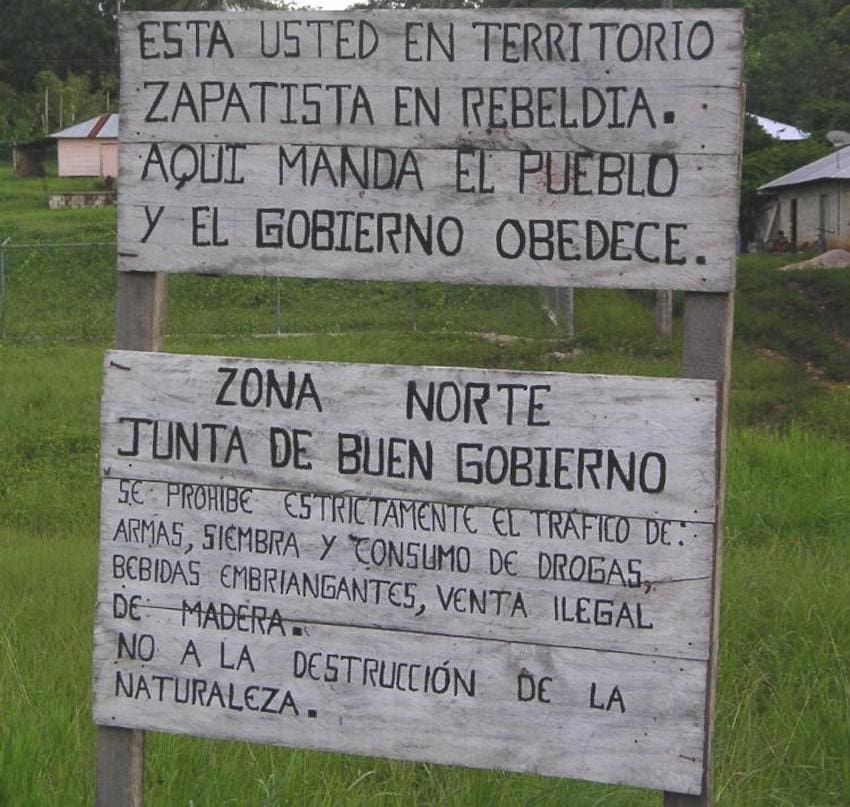
“We will also explain to you what the new structure of Zapatista autonomy is like and how it has been developing. All that, and more things, will appear at the right time,” the statement said.
The Associated Press reported that the changes may be related to the upcoming presidential election, noting that the EZLN has put forward candidates in the past.
Gerardo Alberto González Figueroa, an academic at the College of the Southern Border in San Cristóbal de las Casas, told the newspaper Milenio that the EZLN has ceded control of its strongholds to criminal groups that operate in Chiapas.
While the EZLN statement didn’t say that, it did speak at length about crime problems in Chiapas, using the kind of quirky language for which the Zapatistas have become known.
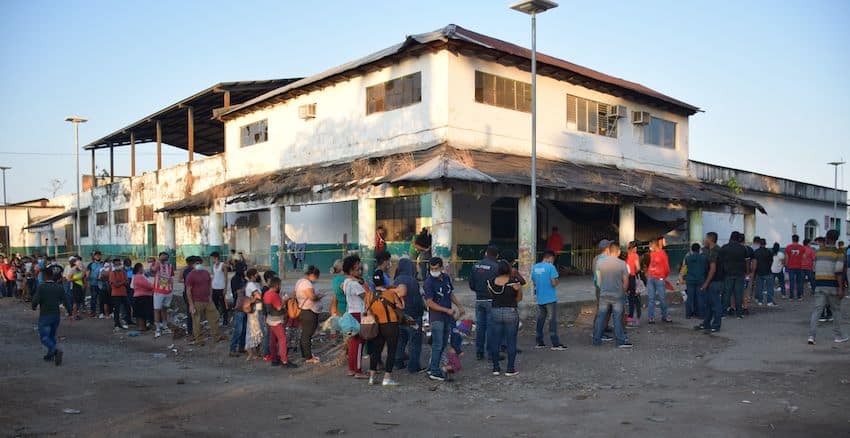
“San Cristóbal de las Casas, Comitán, Las Margaritas and Palenque, to mention some municipal seats, are in the hands of one of the disorganized crime cartels and in dispute with another,” said the statement, of which English, Italian, Portuguese and German translations were published in addition to the original in Spanish.
“This is confirmed by the so-called hotel, tourism, restaurant and service industries. Those who work in these places know this and have not reported it because they are threatened and, furthermore, because they know that any request is useless, because the state and municipal authorities are the ones who commit crimes,” it continued.
The EZLN, which protested violence in Chiapas in marches in June, said that the crime problem in rural communities is “even more serious.”
“This is what is being shouted by those who live in all the regions of Chiapas, particularly in the entire border strip with Guatemala,” the statement said.
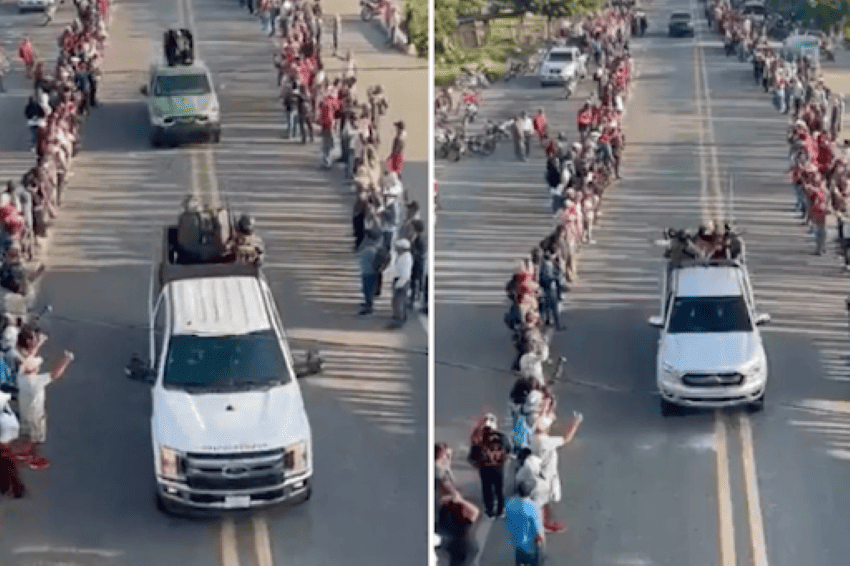
The southern border region of Chiapas has long been plagued by a turf war between the Sinaloa Cartel and the Jalisco New Generation Cartel, as well as local crime groups affiliated with those organizations.
The EZLN statement also said that “the main cities” of Chiapas “are in complete chaos” and that mayors’ offices are “occupied by what we call ‘legal hitmen’ or ‘disorganized crime.'”
“There are blockades, robberies, kidnappings, extortion, forced recruitment, shootings. This is the effect of the protection of the state government and the dispute over political positions,” it said.
According to González, cartels have “infiltrated” various parts of Chiapas, not just those controlled by the EZLN.

“All organizations are suffering from this growth of drug trafficking,” he said.
The EZLN statement asserted that the military and municipal, state and federal police forces “are not in Chiapas to protect the civilian population” and have the “sole purpose” of stopping migration through the state.
“That is the order that came from the U.S. government,” said the organization, which rejects government aid programs and has opposed the current administration’s infrastructure projects, including the Maya Train.
According to Gaspar Morquecho, an anthropologist who has studied the EZLN for decades, the Zapatistas have become increasingly isolated and young people have consequently left towns controlled by the organization to seek work and education opportunities elsewhere.

“The EZLN has also closed off ties to other groups and organizations, and so they have become isolated,” said Morquecho, who was quoted in an Associated Press report.
While their autonomous municipalities have apparently gone by the wayside, the EZLN – formerly headed up by the mysterious Subcomandante Marcos – still survives 40 years after its formation.
Its statement said that its caracoles, or administrative centers, remain, but are “closed to the outside world until further notice.”
It also said that a celebration will be held to mark the 30th anniversary of its 1994 uprising.
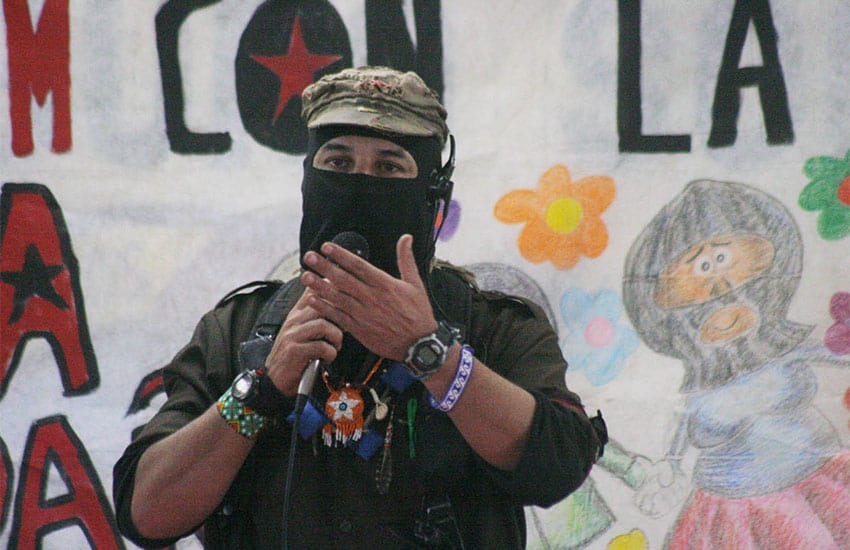
“We inform you that we will hold a celebration to mark the 30th anniversary of the beginning of the war against oblivion. … All people who signed the ‘Declaration for Life‘ are invited. However, it is our duty, while inviting you, to discourage you [from coming],” the statement said before saying that Chiapas “is not safe” due to the presence of criminal organizations.
“… The tentative dates of the commemorations are between December 23, 2023 and January 7, 2024, the central celebration being December 30-31 and January 1-2. We will tell you the place afterwards. That is to say, we do want you to come, although we don’t recommend it,” the EZLN said.
“Even if you don’t arrive, don’t worry. We will still send you photos and videos,” the statement added.
